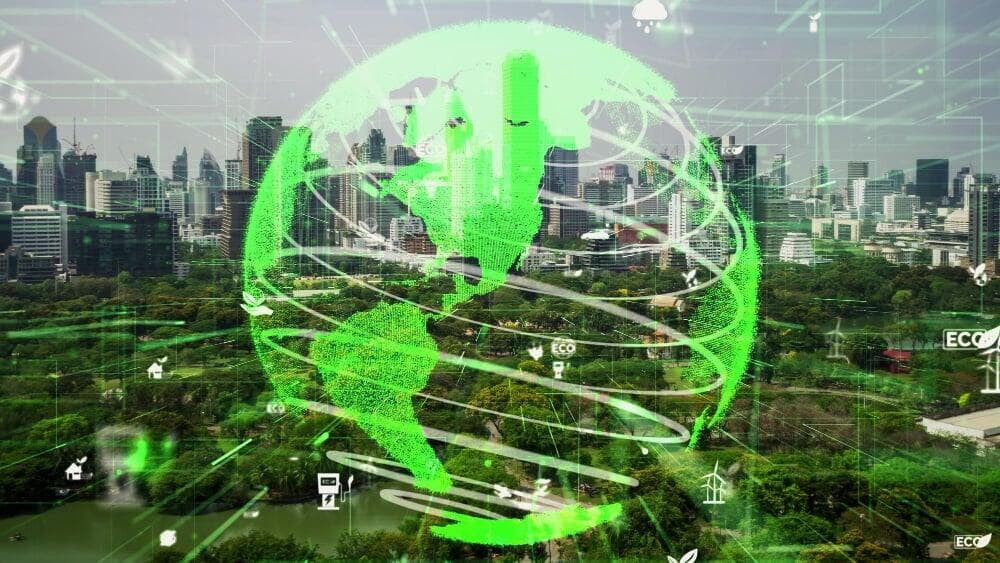Why Sustainable Tech is the 2024 Top Trend
Why Sustainable Tech is the 2024 Top Trend

- Our planet requires delicately balanced solutions that reconcile technological progress with ecological preservation.
- Sustainable technology encompasses innovations and practices that minimize negative impacts on the environment while promoting long-term well-being.
- We can’t disagree that technological innovations have brought convenience and progress, but they’ve also generated e-waste, plastic pollution, and chemical contaminants.
- Green technologies have the power to completely alter how resources are consumed, by replacing non-renewable resources, mitigating ecological damage through the development of new technology, and optimizing the current technology and infrastructure.
- Eco-friendly solutions not only offer environmental benefits but also present opportunities for significant economic and social progress.
Remember the days when sustainability was a niche concern? Those days are gone. In 2024, sustainable technology has become the hottest trend across every industry.
Our planet requires delicately balanced solutions that reconcile technological progress with ecological preservation. This is where sustainable technology emerges as a beacon of hope, a guiding light in our collective journey towards a more harmonious relationship with the environment.
What is Sustainable Tech?
Sustainable technology, often referred to as sustainable tech, encompasses innovations and practices that minimize negative impacts on the environment while promoting long-term well-being. It’s about creating solutions that balance economic growth, social equity, and ecological resilience.
Gartner, which recently identified sustainable technology as one of its top strategic technology trends for 2024, predicts that 25% of CIO compensation will soon be linked to their green technology impact.
The Growing Need for Sustainability
According to Climate Copernicus, 2023 is confirmed as the warmest calendar year in global temperature data records going back to 1850.
With such extreme weather events, rising sea levels, and biodiversity loss we can’t close our eyes to these threats any longer. With each passing day, the effects of climate change are felt even more acutely.
Our insatiable demand for resources — such as minerals, water, and forests — has led to their rapid depletion. Technology-driven extraction, manufacturing, and consumption patterns strain ecosystems and disrupt the natural balance. We can’t disagree that technological innovations have brought convenience and progress, but they’ve also generated e-waste, plastic pollution, and chemical contaminants.
That’s why addressing these challenges requires a fundamental rethinking of our technological systems and practices, toward more sustainable and regenerative approaches. And 2024 is the year to seriously rethink the way we live!
How Sustainable Tech is Making a Difference
Sustainable technology has the power to completely alter how resources are consumed, but it also represents a broader shift in the tech industry toward more environmentally friendly methods, which will be indicated by three main trends:
- The primary focus is on replacing non-renewable resources with renewable energy and biodegradable products.
- The mitigation of ecological damage through the development of new technology intended to prevent environmental degradation.
- The efficiency revolution maximizes the saving of energy and resources by optimizing the current technology and infrastructure.
Here are more eco-friendly initiatives to watch in 2024:
Advancing Towards Net Zero
In recent years, there has been a heightened global emphasis on achieving net-zero emissions, where human-generated greenhouse gas emissions are counterbalanced by an equivalent amount removed from the atmosphere. In this pursuit, organizations will concentrate their endeavors on two primary fronts in 2024:
- Clean Energy: A key component of net-zero projects is the transition from fossil fuels to renewable energy sources. Companies are implementing energy-efficient practices and technology at the same time as they direct capital into renewable energy projects.
- Sustainable Supply Chains: An increasing number of companies are attempting to make their supply chains more sustainable due to growing consumer demand for labor practices and safe working conditions, as well as eco-friendly production and packaging materials and waste reduction strategies.
Sustainability Reporting
Sustainability reporting is poised for significant growth this year, marked by the implementation of key regulations such as the European Union’s Corporate Sustainability Reporting Directive (CSRD) and new mandatory reporting rules in California.
Advancements in Automation Across Production
The integration of products, software, and data across industries presents opportunities for lowering carbon footprints in product design and manufacturing. Automation, in various forms, is pivotal in achieving these sustainability goals on a larger scale. Numerous enterprises have started adopting automation techniques like robotic process automation (RPA) and digital process automation (DPA), yet there’s room for more.
Advancements in Artificial Intelligence and Machine Learning
Advancements in artificial intelligence (AI), machine learning (ML), and other cutting-edge technologies offer powerful tools for companies aiming to address their environmental impact. AI, for instance, facilitates energy optimization, emissions reduction, and strategic decision-making in sustainability initiatives. Similarly, Industry 4.0, which integrates IoT, cloud computing, and AI into manufacturing processes, enables smart factories to automate tasks, conduct predictive maintenance, and optimize operations.
Transition Toward Circular Economy
Embracing the circular economy model is gaining momentum as it shifts perspectives on waste. Instead of viewing items as disposable, this approach emphasizes reuse and recycling. The aim is to minimize waste and maximize resource efficiency. Businesses are pivotal in driving this transition by redesigning products for durability, reusability, and recyclability.
Benefits Beyond the Environment
Sustainable technology not only offers environmental benefits but also presents opportunities for significant economic and social progress.
Gartner defines sustainable technology as a framework of digital solutions that can enable environmental, social, and governance (ESG) outcomes for the enterprise and its customers.
In 2024 sustainable technology emerges as our compass, guiding us toward a more resilient and harmonious future. It offers a powerful solution, driving innovation that meets our needs without compromising the future.